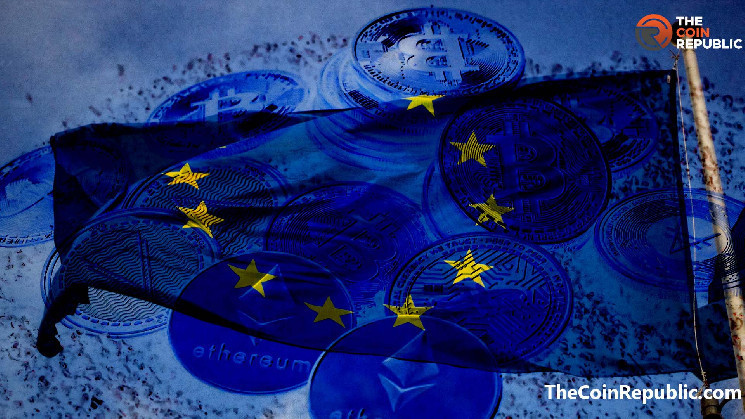- Blockchain is a distributed ledger where transactions are recorded.
- The European Union has come up with a new use case of blockchain technology.
- The Intellectual Property Rights Office will work against counterfeiting using blockchain.
Blockchain V. Counterfeiting
Blockchain technology has truly revolutionized the world. The fact that it is immutable, eliminates the bad actors trying to trick users across the world. Recently, the European Union has announced a document to kick out counterfeiting from the game. They are working on a blockchain infrastructure that will focus on the authenticity of the products.
Counterfeiting is the practice of imitating the original product. The organization thinks that blockchain can be a groundbreaker in fighting against such practices. High product demand in the market can lead sellers to deliver counterfeited items to consumers.
The EU’s Intellectual Property Rights Office will make use of the synchronized and decentralized structure of blockchain to deliver and create an authentic record of the product. The holders of IPR can create a token that will be associated with a tangible product. They can transfer the rights or tokens to others to use the products on their behalf of them.
As the token is associated with a real-life product, users can easily keep track of its status. The token will move along with the product. In simple words, the product will travel from one holder to another, transferring the token from the sender’s wallet to the receiver’s wallet. The original ID and constant transfer will verify the authenticity of the goods.
According to the document, the blockchain will record the shipping information for the transporter. This will eliminate the need to open up the sealed boxes containing the product. In addition to security, the blockchain can notify the user in case of any strange anomaly. It will let the users know if someone’s trying to conduct any illicit practice with the item.
The retailers and the customers can benefit from the initiative as they can verify the original information of the product. Malicious actors cannot manipulate the records of transactions on the blockchain. The EU is still working on this initiative, but the emergence of real-life use cases of this technology can help in the faster adoption of blockchain across the globe.
 thecoinrepublic.com
thecoinrepublic.com
